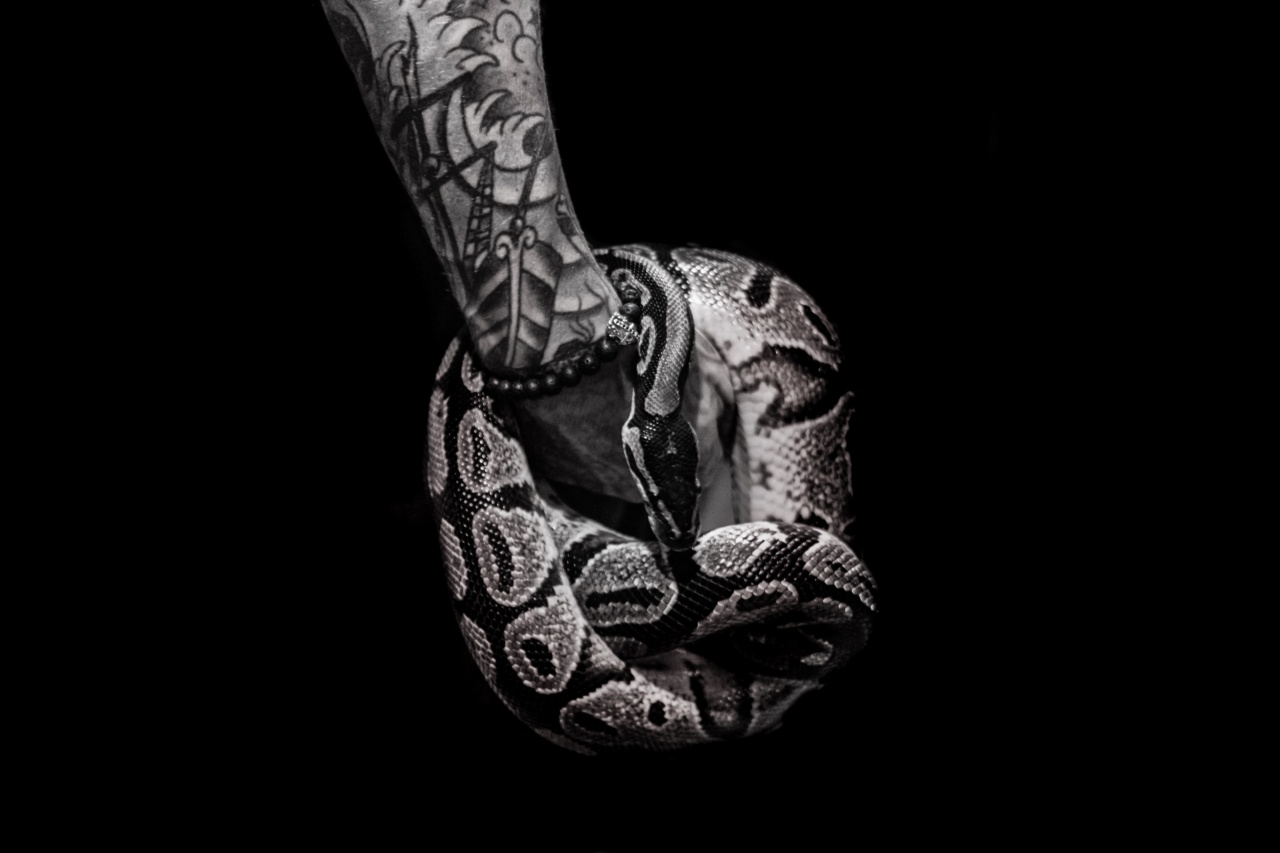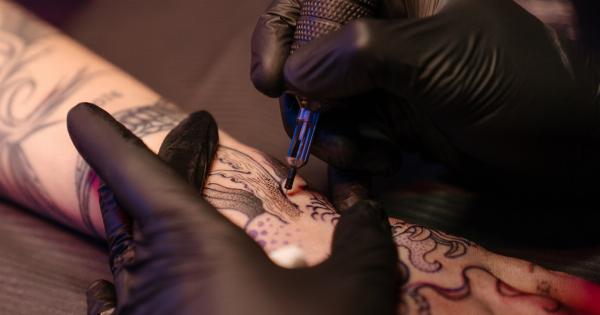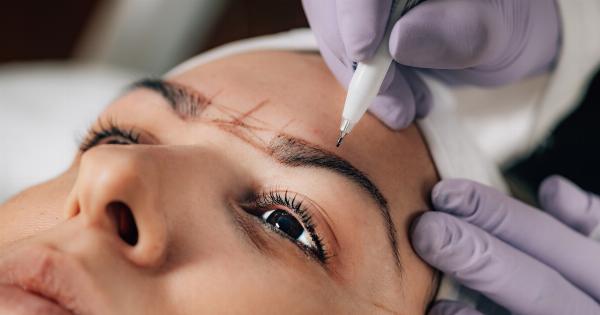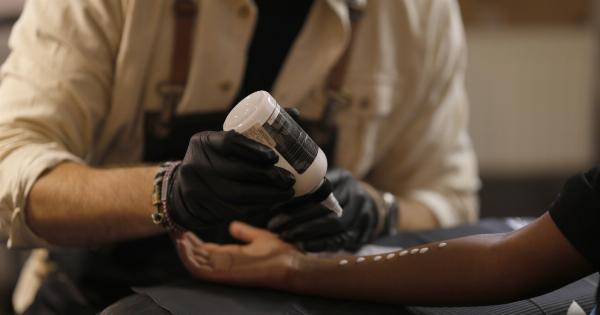Tattoos have always been popular, with the art form dating back to the Ancient Egyptians and Greeks. Tattoos were once seen as a way for sailors, tribespeople and criminals to express themselves and make a statement.
However, tattoos have now become a mainstream trend, with millions of people around the world sporting ink. While tattoos can be a form of self-expression and even considered fashionable, they also pose unforeseen dangers that many people may not be aware of.
Danger #1: Infection
One of the most significant dangers of getting a tattoo is the risk of infection. Tattoo artists use needles to inject ink into the skin.
If these needles are not cleaned and sterilized properly, they can spread infections such as hepatitis B, hepatitis C and even HIV. It’s essential to ensure that the tattoo parlor you choose adheres to strict hygiene standards and uses new needles for every client.
Moreover, tattoo recipients must care for their tattoos responsibly, keeping them clean and avoiding exposure to dirt and bacteria.
Danger #2: Allergic Reactions
Another unforeseen danger of tattoos is the risk of allergic reactions. Some people are allergic to certain tattoo dyes and can develop itchy, rash-like symptoms.
Additionally, certain tattoo ink colors can cause allergic reactions, such as red ink, which contains mercury sulfide, which can cause skin irritation, redness, and swelling. It is crucial for individuals to consult with a dermatologist or their tattoo artist for information on the types of ink being used and their potential risks.
Danger #3: Skin Conditions
People with skin conditions like eczema, psoriasis and other autoimmune diseases might face complications when getting tattoos. These conditions can amplify the impact of the needle on the skin, leading to inflammation, rash, and scarring.
It’s essential for people with these skin conditions to consult with a dermatologist before getting tattoos. They should also inform their tattoo artist of their condition and take necessary precautions to avoid further skin irritation.
Regret: Danger #4
One of the most prevalent unforeseen dangers associated with tattoos is that people don’t always consider the long-term implications of getting a tattoo.
What they once thought as a good idea or a self-expression may turn into dissatisfaction and even regret over time. While tattoos have become more socially acceptable, employers are still hesitant to hire someone with visible tattoos, which could hinder their career prospects.
Additionally, tattoos may fade and become distorted over time, ruining the initial design’s appearance, leading to even more regret.
Danger #5: Removal Difficulties
Tattoo removal is a complicated and costly process that many people don’t even consider.
Unlike getting a tattoo, which is relatively simple and quick, tattoo removal is a lengthy process that can take months or even years, depending on the size and complexity of the tattoo. There are also risks associated with tattoo removal, including pain, skin irritation, and scarring. It’s crucial to consider these factors before deciding to get a tattoo.
Danger #6: MRI Complications
Individuals with tattoos may experience complications when undergoing Magnetic Resonance Imaging (MRI) scans. MRIs use powerful magnets to create images of internal body structures.
If a tattoo contains metallic ink or pigment, it could interfere with or distort the MRI image, potentially causing harm or delaying medical procedures. It’s essential to inform medical personnel of any tattoos before undergoing an MRI.
Danger #7: Future Implications of Tattooing
There are limited studies on the long-term effects of tattooing on the body. However, some studies suggest that the ink used in tattoos could be broken down by the immune system and travel to nearby lymph nodes, which could pose additional health risks.
In rare cases, tattooing has also been linked to cancer diagnoses. It’s important to research the risks associated with tattoos continually and make informed decisions based on the best available information.
Danger #8: Unlicensed Artists
Another danger posed by tattoos is the proliferation of unlicensed tattoo artists, often operating in illegal or makeshift tattoo parlors.
These artists often use homemade tattoo guns and non-sterile needles, putting clients at high risk of infection and other health complications. It’s important to choose a licensed and reputable tattoo artist who follows strict health and safety protocols when receiving a tattoo.
Danger #9: Disfiguration
In some cases, tattoos can result in disfiguration or mutilation. This risk is particularly high in individuals who have to receive tattoos in sensitive areas or already have skin conditions.
Some tattoos can cause swelling, scarring, or even severe allergic reactions that may require medical attention. Certain designs, such as tribal tattoos, are intentionally designed to mutilate the skin, which could result in disfigurement or long-term skin damage.
Danger #10: Addiction
Tattooing can be addictive, and some people may develop an addiction to getting tattoos. Addiction to tattooing is caused by the body’s release of endorphins (natural painkillers) and adrenaline during the tattooing process.
These chemicals produce feelings of euphoria and pleasure, leading to a rush similar to a drug high. While the addiction to tattooing is not a direct physical danger, it could result in poor decision-making and financial instability due to excessive spending on tattoos.


























